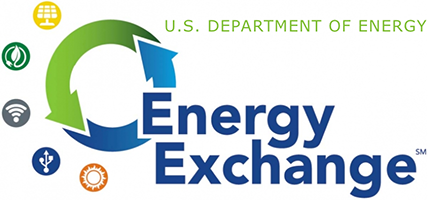Pittsburgh, PA

Federal policies and regulations can have an impact on state and local actions. The Executive Order (EO) 14057 seeks to promote clean energy industries and jobs via federal sustainability efforts prioritizing environmental protection, emissions reduction, and climate change mitigation. As a result, many states and localities have adopted their own climate goals and regulations, such as renewable energy targets, clean energy standards, and greenhouse gas reduction programs. While federal policies provide the overall framework for a range of issues, it is at the state and local levels where these policies are often implemented and directly impact communities and residents. This presentation will show how Federal policies can connect projects at all levels, prioritizing sustainability principles and goals to tackle climate change.
Instructors
Rebekah de la Mora, Policy Analyst, NC Clean Energy Technology Center, North Carolina State University Read Bio
Rebakah de la Mora is a Policy Analyst at the NC Clean Energy Technology Center. In this role she tracks legislation and regulation related to clean energy in 11 states and territories. The NC Clean Energy Technology Center runs the Database of State Incentives for Renewables and Efficiency (DSIRE), which provides information on programs and policies regarding renewable energy and energy efficiency at the Federal, state and utility level. Previously she researched renewable thermal policies and technologies for the Connecticut Department of Energy. She holds a Bachelor's degree in Political Science and a Master's degree in International Energy from SciencesPo University in France.
Josephine Tucker, Managing Director of Clean Energy and Infrastructure, JLL Read Bio
Josephine Tucker is a Managing Director at JLL and leader of the firm's Clean Energy and Infrastructure Advisory group. As the Head of the Clean Energy and Infrastructure Advisory Group, she oversees all engagements providing transaction and advisory solutions that target clean energy and infrastructure for individual assets and global portfolios. She has more than 15 years of experience in energy, real estate, and transportation, with a focus on planning and economic and financial analyses. Her past clients include state and local and entities nationwide, the federal government, and government agencies in Australia including a special advisor to Infrastructure Australia.
Chris Cieslak, Chief Operating Officer, VP of Programs, Green Building Alliance Read Bio
Chris Cieslak is the Chief Operating Officer and VP of Programs at Green Building Alliance, working with cross-sector stakeholders to integrate positive environmental, health, and economic outcomes in projects of all types and scales. She has served over 30 years as a project development representative in the cultural institution, sports & entertainment industries. Significant projects Chris has managed include professional sports venues for the Pittsburgh Pirates, Pittsburgh Penguins, and Edmonton Oilers, educational institutions including AW Beattie Career Center and Pittsburgh Public Schools, and cultural institutions such as the Carnegie Science Center and Children's Museum of Pittsburgh. After graduating from Penn State University with a Bachelor of Science degree in Civil Engineering and receiving an Army commission through ROTC, Chris spent 24 years in the Army Reserves rising to the rank of Lieutenant Colonel, and deployed to Kuwait and Afghanistan, serving as the Chief of Strategic Basing in Afghanistan.
Paulina Jaramillo, Professor, Engineering & Public Policy, Carnegie Mellon University Read Bio
Originally from Medellin, Colombia, Paulina Jaramillo is a Professor in the Department of Engineering and Public Policy at Carnegie Mellon University (CMU). At CMU, she is involved in multi-disciplinary research projects to understand better the social, economic, and environmental implications of transitions in the global energy system. She has been an Andrew Carnegie Fellow (2020), a Coordinating Lead Author for the report of Working Group III of the IPCC's 6th Climate Assessment Report (2019-2022), a member of the National Academies Roundtable on Macroeconomic and Climate-Related Risks and Opportunities (2023-2024) and an ELATES Fellow (2023-2024). She holds a BS degree in Civil and Environmental Engineering from Florida International University and a MS and PhD in Civil and Environmental Engineering from Carnegie Mellon University.
Learning Objectives
Upon completion of this course, attendees will be able to:
- Identify state/local energy initiatives;
- Identify opportunities to leverage initiatives to achieve EO14057-related targets and other federal energy statutes and policies;
- Recognize successes in state/local energy deployments relevant to wider federal deployments across the US;
- Identify new state/local initiatives and programs and the progress of ongoing programs.









